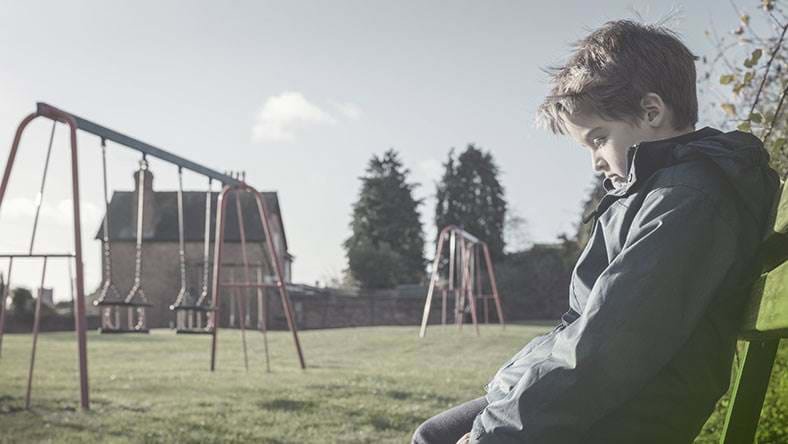
What is Institutional or Organisational Abuse?
Institutional abuse, also known as organisational abuse, is when an individual or group of individuals are neglected or suffer because of poor care practices within an organisation or care setting.


Senior Associate Solicitor & Team Leader, Abuse Claims
TW: This article covers themes of abuse
Domestic violence is often perceived only as physical acts of violence – But it’s much more complicated than that. A lot of the time, people witnessing or experiencing this kind of behaviour don’t know that it is domestic violence. It therefore often goes on unreported and is often ignored. But domestic violence can happen at any point in a person’s relationship and there are many forms that it can take.
In late 2021, the BBC found that 13,000 domestic violence cases in England and Wales have been dropped by the police in the previous five years, because the victims hadn’t reported the crimes within the time limit of six months.
Because of this, on the 4th January 2022, the Police, Crime, Sentencing and Courts Bill was amended to reflect a two-year time frame, giving victims of domestic abuse a chance at reporting the crimes. The victims were given a longer time to report, and the authorities were advised that they have to carry out an investigation within six months of the report in order to prosecute.
Sadly, in the UK, every 30 seconds the police receive a domestic abuse related call. But according to the Refuge charity statistics, this is only 24% of all domestic crime, given that the majority of domestic violence cases are never reported to the police.
Contact our Domestic Abuse Solicitors to see how we can help you.
When someone domestically abuses another person, they use bullying, threats and violence to control this person. Domestic abuse can happen to and be perpetrated by both men and women, and there are many different forms.
Under the Government, domestic abuse is defined as, “Any incident, or pattern of incidents, of controlling, coercive or threatening behaviour, violence or abuse between those aged 16 or over, who are or have been intimate partners of family members, regardless of gender or sexuality”.
Examples of the types of abuse that victims experience, but are not limited to:
Controlling behaviour is: a variety of acts designed to make a person dependent on the abuser, by isolating them from sources of support, and exploiting their resources/funds for personal gain. They can also regulate your everyday behaviour and restrict any form of escapism; which may include seeing friends, going to the shops, or even taking up hobbies that don’t involve the abuser.
Coercive behaviour is: an act or a pattern of acts of assault, threats, humiliation and intimidation or other abuse that is used to harm, punish, or frighten their victim.
Psychological/Emotional: all psychological abuse differs from person to person. These may be regular and deliberate words and non-physical actions that are intended to manipulate and hurt you. The mental abuse also weakens you as an individual and frightens you emotionally and mentally. This can massively affect someone’s thoughts and their actions, confusing and influencing them.
Economic/Financial: a form of abuse that takes control of finances. This can include stealing money, coercing someone into debt, or sabotaging the access to money and other resources. This can include necessities, such as food, clothing, transportation and a place to live.
There are definitely signs of domestic abuse, but they may just seem like small red flags when entering into a relationship. These red flags could include some of the following:
All of these forms of abuse can be inflicted to any man or woman, regardless of their background, career, age, race or sexuality.
Remember, it’s not your fault. The perpetrator of abuse could be your partner, your parent, or another family member.
If you’ve unfortunately experienced domestic violence in either England or Wales, you could be eligible to apply to the Family Court for an Injunction, which is also known as a Court Order. This can help you protect yourself and any children you have. There are 2 main types of Court Order which could help you in this situation:
The Non-Molestation Order stops someone from being violent, or from threatening violence, against yourself or your child. This Order also covers intimidation, harassment and pestering, and breaching it is a criminal offence. To make a successful application for a Non Molestation Order, you’d need to demonstrate in Court how you or your child will be at risk if the Order isn’t granted.
If you live with the person who is abusing you, an Occupation Order controls who lives in your family home. This type of order can also help restrict your abuser’s access to the area around your house. There are several factors that could impact the Court’s decision as to whether they’ll grant you an Occupation Order, such as your housing needs and that of your abuser, and the possible consequences that making an Order or refusing it will have on you and your children.


BBC News. (2021). Domestic Abuse: Plan to Criminalise Controlling Behaviour Unveiled. Retrieved from https://www.bbc.co.uk/news/uk-politics-58980387
UK Parliament. (n.d.). Domestic Abuse Bill. Retrieved from https://bills.parliament.uk/bills/2839/publications
UK Government. (2019). Domestic Abuse Victims in England and Wales to Be Given More Time to Report Assaults. Retrieved from https://www.gov.uk/government/news/domestic-abuse-victims-in-england-and-wales-to-be-given-more-time-to-report-assaults
Refuge. (n.d.). The Facts. Retrieved from https://refuge.org.uk/what-is-domestic-abuse/the-facts/
Simpson Millar LLP. (n.d.). Domestic Abuse. Retrieved from https://www.simpsonmillar.co.uk/abuse-claims-solicitors/domestic-abuse/
UK Government. (n.d.). Domestic Violence: Definition. Retrieved from https://assets.publishing.service.gov.uk/government/uploads/system/uploads/attachment_data/file/157800/domestic-violence-definition.pdf
SafeLives. (n.d.). Psychological Abuse. Retrieved from https://safelives.org.uk/about-doemstic-abuse/what-is-domestic-abuse/psychological-abuse/
Surviving Economic Abuse. (n.d.). What Is Economic Abuse? Retrieved from https://survivingeconomicabuse.org/what-is-economic-abuse/
UK Government. (n.d.). Criminal Injuries Compensation Authority. Retrieved from https://www.gov.uk/government/organisations/criminal-injuries-compensation-authority
UK Parliament. (2021). Domestic Abuse Act 2021. Retrieved from https://www.legislation.gov.uk/ukpga/2021/17/contents/enacted
Women's Aid. (2021). Child and Youth Participation Good Practice Guide. Retrieved from https://www.womensaid.org.uk/wp-content/uploads/2021/06/CYP-good-practice-guide.pdf
HealthDay Consumer. (2021). Witnessing Abuse of a Sibling Can Traumatize a Child. Retrieved from https://www.healthday.com/health-news/public-health/b-9-21-witnessing-abuse-of-a-sibling-can-traumatize-a-child-2655054620.html
NHS. (n.d.). Depression in Adults. Retrieved from https://www.nhs.uk/mental-health/conditions/depression-in-adults/overview/
Mind. (n.d.). Home. Retrieved from https://www.mind.org.uk/
NAPAC. (n.d.). NAPAC - National Association for People Abused in Childhood. Retrieved from https://napac.org.uk/
Fill in the form below to get in touch with one of our dedicated team members, or call our team today on: 0800 260 5010